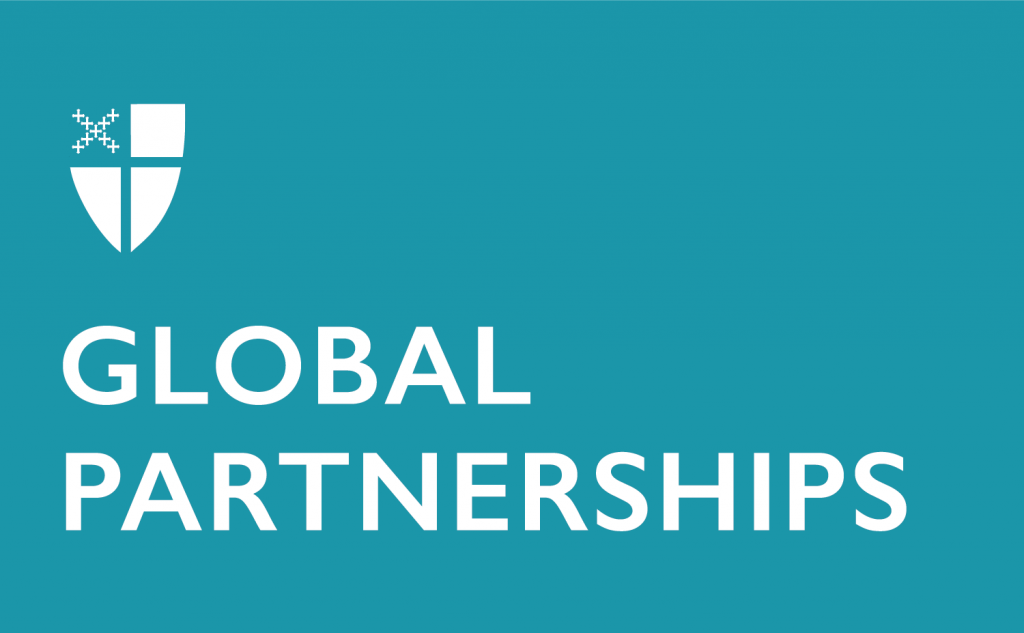Hallelujah Anyhow
Paul Daniels, II
The following is a reflection on Luke 21:1-4 offered by Young Adult Service Corps missionary Paul Daniels, II of the Diocese of North Carolina at this year’s missionary orientation. He will be serving as a student minister at the Cathedral of St. Michael and St. George in Grahamstown, South Africa.
“As Jesus looked up he saw the rich putting their gifts into the temple treasury. He also saw a poor widow put in two very small coins. ‘Truly I tell you,’ he said, ‘this poor widow has put in more than all the others. All these people gave their gifts out of their wealth; but she out of her poverty put in all she had to live on.”
Nichelle is a woman that attends a church I once attended. She is a fairer skinned African-American woman whose smile is so brilliant that her eyes close in reverence of its radiance. Her hair, worn naturally, is a thick black crown of curls often wrapped in some traditional African fabric.
Nichelle shuffles into church, embraces me as if I am her child, the women as if they were her sisters, and the men as if they were her brothers; she heads to the fifth pew from the front and begins her morning prayers.
I love to preach when Nichelle is at church because I am sure to get a “HALLELUJAH.” And she was the first person I heard profess “Thank YA!” in the middle of an 18th century Anglican hymn.
But, life for Nichelle, as Langston Hughes put it, “ain’t been no crystal stair.” In fact, it’s been a life full of cracks and dings and brokenness. Nichelle, like many of her neighbors, struggles with severe poverty. And poverty holds real consequences for Nichelle’s health and well-being. Yet, Nichelle always manages to say, “Hallelujah anyhow!”
“Hallelujah anyhow” is an existential and verbal supplement that has sustained systematically oppressed people for centuries. It is the personal acknowledgment that I might not have what I want, and I may not be where I want to be—tempered by the transcendent reality that through the grace of God I have what I need and I am where I need to be.
Nichelle is much like the woman in our scripture reading. Nichelle doesn’t praise God on Sunday, put money in the collection plate, or love her fellow parishioners so intensely as a status symbol, to showoff what she owns in material possessions. Most Sundays she has not the money nor the energy; yet, what she does have is faith that God will provide. So, she gives without ceasing, complaint, or apparent limitation. She gives out of her poverty and depletion as an act of letting go of fear; thus, making room for God to show up and show out!
It might be out of some small or large place of privilege in our own lives that has led us to this place, into the knowledge that we can be international bearers of the Good News. But, we have been reminded time and again that it will not be, and dare I say should not be, privilege that defines how we do mission. If our wise and loving leaders in Mission Personnel tell us that we should not lead with the mentality that out of our abundance we have much to give, perhaps it is to prepare us for the many days and nights ahead—nights when we will feel a deep poverty of things or spirit. Perhaps it is to say that in these moments of isolation, or loneliness, when all we can think about are the people and things that we have left behind, when we are “stripped down to the literal substance of ourselves”—as Howard Thurman writes when describing a Jesus that cries out in Mark’s crucifixion story for a God he cannot see, but trusts is still there—that that is when God will be most vibrantly and powerfully available to us, for us, and with us—to hold and to share with others.
And perhaps that is when we should say “Hallelujah anyhow” and trust that what we have left to give, even when we can’t see it or name it, is more than enough. It will be the most divine gift because it will be ALL we have to give, it will be our true selves. No pretense about it.
Leonard Cohen writes, “Love is not a victory march…it’s a cold and it’s a broken hallelujah!”
I hope that when we find ourselves financially, spiritually, and physically broken (and I’ve heard that there’s a good chance of that) that we will remember Nichelle, say “Hallelujah anyhow” and deeply and divinely love those with whom we live and work. In moments of poverty I pray that each of us will love richly—the kind of love that cannot be measured in dollars and cents.

